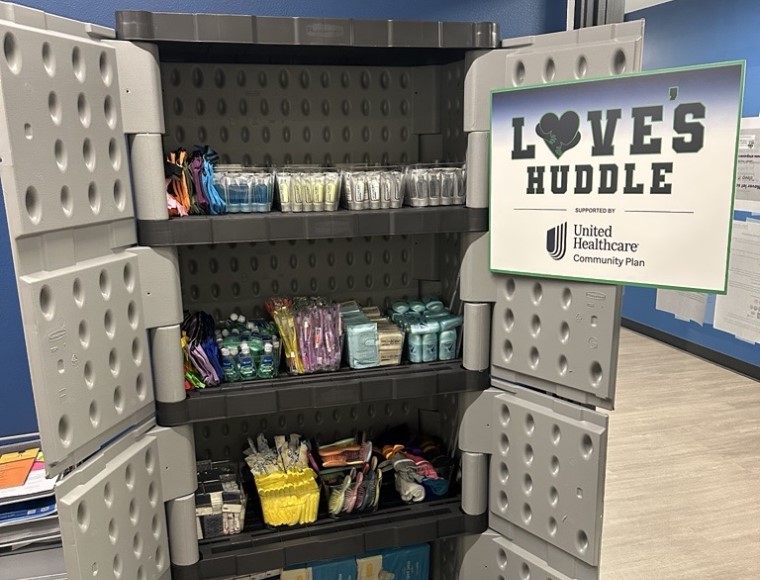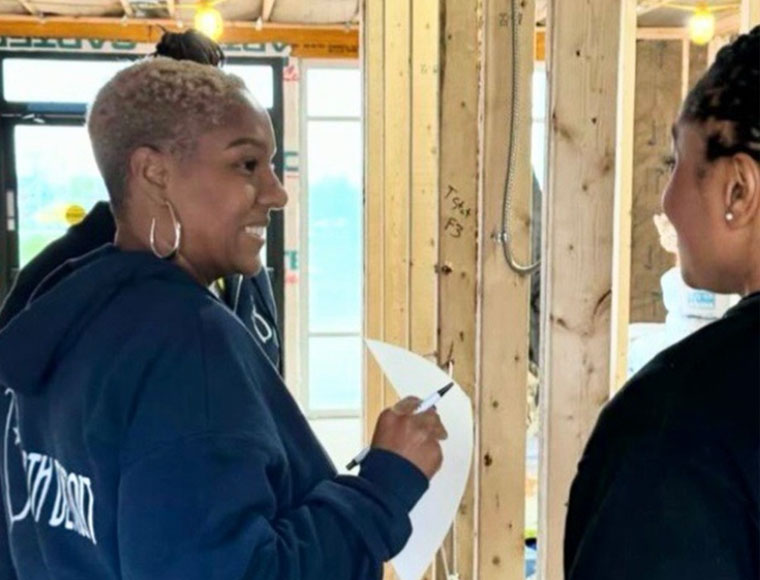Every May, we take time to recognize National Foster Care Month, the children in our foster system and the foster parents who support them. There are nearly 425,000 children in the foster care system today. While these children and youth are just like any other kids, they have also experienced significant disruptions in their home environments that create unique care needs.
I grew up in foster care, and over the course of my childhood was placed in 13 different homes from age four until I graduated high school. When you move between counties and states that often, change becomes the norm. Every move requires re-establishing yourself with a new family, a new school system and a new system of care. This makes care continuity difficult, especially if a child’s foster parents are navigating the health system alone or caring for multiple foster children.
As a pediatrician, I have worked firsthand with children in foster care and their families — and I have seen how important it is for everyone in the health system to understand their roles as advocates for this unique population of patients. That starts with making sure foster families have the support they need to coordinate a child’s care and services.
The unique care needs of children in foster care
Because children in foster care frequently change home environments, consistent care is one of the most difficult challenges foster families face. The disruption these children experience impacts their emotional, physical, developmental and social health, and no two children have the same background or needs. Understanding the whole child, including their developmental phase and the impacts of the trauma they have experienced, is critical to understanding the resources, supports and care they need.
Having a health care team, pediatrician, family practice provider or specialist that understands the nuances of a child’s growth and development is important for all kids, but especially for those in the foster system who require additional supports.
Some children in foster care may also have significant and complex medical needs that add to the complexity and urgency of care coordination. These cases often include traumatic brain injuries and other conditions that require highly specialized health teams. Having a health care team, pediatrician, family practice provider or specialist that understands the nuances of a child’s growth and development is important for all kids, but especially for those in the foster system who require additional supports.
Supporting foster parents through care coordination
Children in foster care are superheroes, and their superpower is resiliency. They are used to fitting into and adapting to unfamiliar environments. For them, being flexible becomes a necessary life skill, and the ability to try new things becomes a practiced talent. During this pandemic, all children and families had to adjust to changing environments. For children in foster care and their foster families, this was an even greater challenge, but also an opportunity to demonstrate their phenomenal resiliency.
Foster parents, too, are a special kind of superhero. These parents are often entering into a relationship knowing that they will only have their foster child for a temporary period of time. This is emotionally challenging, as these parents must quickly learn the physical, emotional and social needs of each child that comes into their home. They also need to identify how to best coordinate care for each child’s needs. With every new foster placement, this process starts over. Many times, just figuring out how to get a child’s health records is difficult, which only adds stress and creates additional work for these parents. Our dedicated foster and adoption care managers work with providers and child welfare workers to gather available historical information to help simplify this process.
Many times, just figuring out how to get a child’s health records is difficult, which only adds stress and creates additional work for these parents.
We are committed to making lives easier for these families. This includes helping foster parents coordinate health care services such as behavioral and dental, trauma-informed care and other supports. Our teams have dedicated case managers who specialize in the foster system and the unique needs of children in foster care. Their knowledge and understanding is immensely helpful in guiding foster families through times of transition. At the end of the day, no one knows what children in foster care need more than the families themselves. Frequently connecting with caregivers and listening to their concerns and insights helps inform how we provide support and improve our services.
Advocating for children in foster care
We serve more than 65,000 foster children across 13 states. While we advocate for all children from infancy through adolescence and into adulthood, we understand some kids, including those in foster care, may have more significant care needs than others. Having a care team that understands the growth, challenges and opportunities of each developmental phase is critical. By surrounding foster families with the additional care and services they require, we can help set up children in foster care for a healthy future.
Read more from Dr. Kirk












